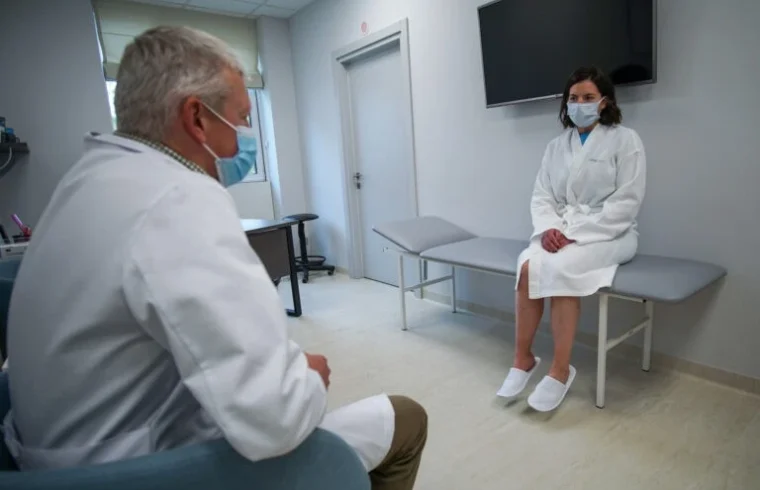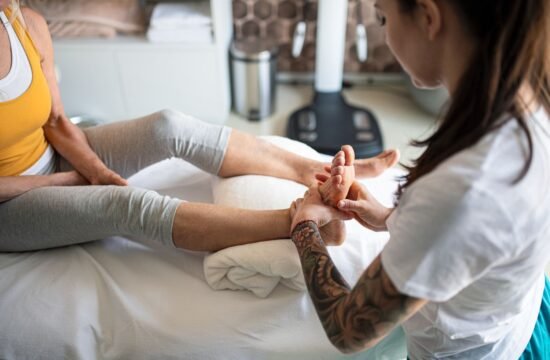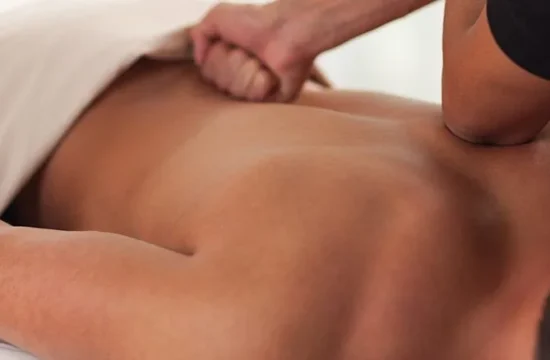Bunions are a common foot problem that can cause significant pain and discomfort. They occur when the bone at the base of the big toe enlarges, causing the toe to push against the others. This can lead to swelling, redness, and tenderness around the joint. Treating bunions is essential to prevent further complications and improve the quality of life. In Liverpool, a variety of treatment options are available to help manage and alleviate bunion symptoms. This article will explore what bunions are, why treatment is important, the different treatment options available, and how to find effective bunion treatment in Liverpool.
Bunion Treatment Liverpool
What is a Bunion?
A bunion is a bony bump that forms on the joint at the base of the big toe. This happens when some of the bones in the front part of the foot move out of place, making the tip of the big toe get pulled toward the smaller toes and forcing the joint at the base of the big toe to stick out. The skin over the bunion might be red and sore. Symptoms of a bunion include swelling, redness, and a visible bump on the side of the foot. Causes of bunions can include genetics, wearing tight or poorly fitting shoes, and conditions like arthritis. Risk factors include family history, foot injuries, and certain inflammatory conditions.
Why Seek Treatment for Bunions?
Ignoring bunions can lead to more severe problems over time. Untreated bunions can cause chronic pain and may result in the development of bursitis, hammertoe, or metatarsalgia. Early treatment can prevent these complications and improve foot function. Treating bunions early can alleviate pain, prevent the deformity from worsening, and allow you to continue your daily activities without discomfort. Additionally, proper treatment can help avoid surgery. Bunions can significantly impact your daily life by causing persistent pain, limiting your footwear choices, and affecting your ability to walk or stand for long periods.
Non-Surgical Bunion Treatments
Proper Footwear
Wearing the right shoes is crucial for managing bunion pain. Choose shoes with a wide toe box to give your toes plenty of space. Avoid high heels and narrow shoes, as they can exacerbate bunion symptoms. Bunion-friendly shoes often feature soft materials and have a low heel to reduce pressure on the toes. Shoes with good arch support and cushioning can also help distribute weight more evenly across your feet, reducing strain on the bunion.
Orthotic Devices
Orthotic devices, such as custom-made shoe inserts, can help alleviate bunion pain by correcting the alignment of your foot. These devices provide additional support to the arch and can redistribute pressure away from the bunion. Over-the-counter orthotics are also available, but custom-made ones are usually more effective as they are tailored to your specific foot shape and condition. Using orthotics can reduce pain, improve walking comfort, and slow the progression of the bunion.
Physical Therapy
Physical therapy can be beneficial for bunion relief. A physical therapist can teach you exercises and stretches that strengthen the muscles around your big toe and improve joint flexibility. These exercises can help reduce pain and prevent the bunion from worsening. Common exercises include toe stretches, flexing and stretching the toe, and resistance exercises using bands. Regular physical therapy can also improve your overall foot function and mobility.
Medication
Over-the-counter pain relievers such as ibuprofen or acetaminophen can help manage bunion pain and reduce inflammation. In some cases, doctors may prescribe stronger anti-inflammatory medications. Topical medications, like creams or gels, can also provide temporary relief from pain and swelling. It’s important to use these medications as directed and consult with a healthcare professional for long-term management strategies.
Surgical Bunion Treatments
When is Surgery Necessary?
Surgery is typically considered when non-surgical treatments fail to provide relief, and the bunion significantly impacts daily activities. Severe pain, deformity, and difficulty walking are common reasons for considering surgery. The decision for surgery is usually based on the severity of the bunion, the level of pain, and the degree of mobility impairment. Consulting with a podiatrist or orthopedic surgeon can help determine if surgery is the right option for you.
Types of Bunion Surgery
Several surgical procedures are available to treat bunions. A bunionectomy involves removing the swollen tissue around the big toe joint. An osteotomy is a procedure where the surgeon cuts and realigns the bones in the foot. Arthrodesis involves fusing the affected joint to correct the deformity. An exostectomy removes the bump from the toe joint but doesn’t address the underlying structural issues. Each type of surgery has its benefits and is chosen based on the specific needs of the patient.
Recovery and Aftercare
Post-surgery care is crucial for a successful recovery. After bunion surgery, it’s important to keep the foot elevated and follow the doctor’s instructions on weight-bearing activities. Physical therapy may be recommended to help restore mobility and strength to the foot. Recovery time varies depending on the type of surgery but generally ranges from a few weeks to several months. Proper care and adherence to post-operative guidelines are essential for a smooth recovery and long-term success.
Finding Bunion Treatment in Liverpool
Local Podiatrists and Specialists
Finding a qualified podiatrist or foot specialist in Bunion treatment Liverpool is the first step towards effective bunion treatment. Look for professionals with experience in treating bunions and related foot conditions. Recommended clinics and hospitals in Liverpool include well-known names like the Liverpool Foot Clinic and local NHS services. These facilities offer comprehensive care and access to the latest treatment options.
What to Expect During a Consultation
During an initial consultation, the podiatrist will assess the severity of your bunion and discuss your symptoms. They may take X-rays to get a detailed view of the foot’s structure. Based on the assessment, the podiatrist will recommend the best treatment options, which could include non-surgical methods or surgery. It’s important to ask questions and understand the pros and cons of each treatment option.
Patient Testimonials and Reviews
Reading patient testimonials and reviews can provide insight into the quality of care provided by different clinics and specialists. Look for reviews on reliable healthcare websites and forums. Testimonials can give you a sense of what to expect from treatment, the expertise of the healthcare providers, and the overall patient experience. This information can help you make an informed decision about where to seek treatment.
Preventing Bunions
Healthy Footwear Choices
Choosing the right footwear is key to preventing bunions. Opt for shoes with a wide toe box, low heels, and good arch support. Avoid tight, narrow, or high-heeled shoes that can put pressure on the toes and contribute to bunion formation. Wearing comfortable and supportive shoes can reduce the risk of developing bunions and other foot problems.
Foot Exercises
Regular foot exercises can help maintain foot health and prevent bunions. Simple exercises like toe stretches, picking up objects with your toes, and flexing and extending your toes can strengthen the muscles around your feet and improve joint flexibility. Incorporating these exercises into your daily routine can help keep your feet strong and reduce the likelihood of bunion development.
Regular Check-Ups
Regular visits to a podiatrist can help catch early signs of bunions and other foot issues. Early detection allows for prompt intervention, which can prevent the condition from worsening. During check-ups, a podiatrist can provide advice on proper footwear, orthotic devices, and exercises to maintain foot health.
Conclusion:
Bunions are a common but treatable foot condition. In Liverpool, a range of treatment options is available, from non-surgical methods like proper footwear, orthotic devices, physical therapy, and medication, to surgical procedures for more severe cases. Seeking treatment early can prevent complications and improve quality of life. By choosing the right healthcare providers and following preventive measures, you can manage bunions effectively and maintain healthy feet.For more information and support, consider visiting websites like the NHS Choices, the British Orthopaedic Foot & Ankle Society, and local support groups for individuals with bunions. Additionally, contact details for reputable podiatry clinics in Liverpool can be found through online directories and healthcare websites.




